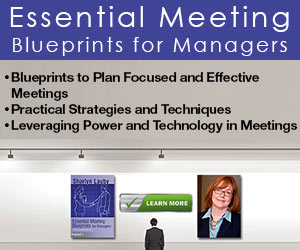We’ve talked a lot here about the do’s and don’ts of job search including LinkedIn profile tips, resume resources, and following-up after a job interview. This question is a new one:
Hi Sharlyn. Do you know if there is any advantage to order or time of day when interviewing? I try not to take the spot right before lunch, when the team is hungry and thinking about getting a break, or first thing in the morning, last thing in the afternoon, for similar reasons. However, I’m wondering if there is any advantage to being the first candidate, the last, etc.? Thanks.
It’s very difficult to know where you are in the hiring process. And even if you did know, I think it would be hard to maneuver yourself to an ideal spot. For example, if you’re the first person called for a job interview, how would you try to schedule yourself later in the process? Maybe you could do that with a second or third interview where you knew the organization was going to interview XX people over a XX span of time. But candidates might be spending their time focused on something they cannot control.
But the question about the best time of day is interesting and one candidates should pay attention to. I asked a few of my recruiting friends for their insights on the best time for a job interview and got some interesting responses.
- Barb Buckner, human resources consultant at TimelessHR Solutions can see the benefits from both sides. “From a jobseeker point of view: either first in the morning or last one of the day. From an Interviewer point of view: I prefer to get all mine done in the morning. Gives me time to think about each candidate and take notes while it’s still fresh in my mind….and before all I want to think about is getting home and leaving it for tomorrow.”
- Suzanne Crest, director of human resources at Longmont Humane Society and a 12-year hiring veteran stresses the importance of being flexible with candidate schedules. “The best time to do an interview is whenever the best time of day is for the candidate (within reason, of course). I want candidates to be their best when we meet, and allowing them to choose the time sometimes helps.
It is so hard for me to hire good folks right now that I absolutely do cater to their needs. If I make things too difficult for a candidate, they might have another interview before mine and take that job instead. Also, being flexible shows what type of culture our organization has (which is not a corporate one, obviously). That being said, it’s good to find a half way point – you do want a candidate to show some effort! I do have the occasional no-show.”
- Kevin Epley, SPHR, SHRM-SCP is a human resources manager in Illinois. He also points out the importance of flexibility, even if it means after normal business hours. “I’ve no preference. As far as the applicant goes, it’s what my schedule commands. Could be first thing in the morning or last thing I do that day, which has occasionally been 6 -7p. I’m flexible and expect the applicant to be as well.”
- John Jorgensen, SPHR, SHRM-SCP is another Illinoisan and an instructor at Northern Illinois University and the University of Illinois. I liked his reply because it was simple and to the point. “Personally, I like midmorning.” Sometimes we have a tendency to overthink things.
- Yvonne LaRose, organizational development and diversity consultant who writes at The Desk points out the importance of listening to one’s body when it comes to important meetings, like interviews. “Make it at a time when there will be little attention to their absence from the job. The more it can be characterized as some type of professional appointment, the better.
After lunch is generally not a good choice because the body of the interviewer is still processing the food; blood sugar levels aren’t optimal, and attentiveness is not good. And there’s also the concern about going overtime for what mere speculation at this time.
But all of that is based on the thought that this is a first interview. When it comes to second or third interview, it depends on when all the parties who need to be seen are available.”
- Laura Miller, SHRM-CP, PHR reminds us that interviews are a two-way street. And that candidates need to consider the recruiter’s preferred time as well. “I hate doing interviews and am the first to admit it. If I have to do them the ideal is 10am or so. After lunch I want to pass out.
I disagree to a certain extent about bending to the availability of the applicant. There needs to be a give and take. Be nice to them to show that they want to come and work for you, but they need to also show they want the job, and that may mean that they need to move something on their calendar as well to make one of the time slots you have available.
I agree that you need to offer some flex, but I’ve seen it the other way too… They need to meet you half way. We have a lot of hard to fill positions, but I don’t think you need to bend completely. You try to accommodate and do what you can, but if, let’s say you give them 6 possible date/time slots they should be able to make one work, if they can’t I would question how badly they wanted the job.”
- Joey Price, CEO of HR consulting firm Jumpstart:HR, LLC thinks of the operation when scheduling interviews. “I prefer scheduling job interviews during off peak hours (10-11:30a or 2-4p) so the candidate has a chance to get to the office without distractions and the interview team isn’t just getting into work or ‘hangry’ because they’re skipping lunch. Never during high traffic time or around lunch time.”
- Mike VanDervort, executive director of CUE, Inc. thinks ahead when it comes to interviews. “My preference is 9:30a. It allows us a chance to get administrative stuff out of the way and a lunch offer (if candidate is promising.)”
I want to thank everyone who weighed in on this conversation and gave me their permission to publish their reply. The big takeaway for me in this was that every situation may be a little different – just like companies are different, recruiters are different, and candidates are different. Chances are, recruiters aren’t going to suggest times that are bad for the operation. And candidates aren’t going to suggest times that make them nervous.
A successful job interview is a conversation. That includes finding the right time to have that conversation.
Image taken by Sharlyn Lauby after a day of client training in Honolulu, HI








Yvonne LaRose says
What preceded my quote highlights my way of looking at situations. I said “it depends.”
There are so many factors that affect the timing of the appointment: Whether it’s the applicant or the interviewer, which interviewer. In fact, it’s also dependent on whether it’s the first or subsequent interview.
My colleagues were more direct about why after lunch isn’t a good idea. I should have been as direct. Instead, folks were burdened with the physiology of interviewing after lunch. Direct response: There’s a higher likelihood of not being as sharp (for either party) right after lunch because you’re more likely to be drowsy.
As I said, it depends.
Yvonne LaRose
Saneets says
I just saw you share this article, great information…!
i liked that, “Personally, I like midmorning.”,
keep it up…! 🙂